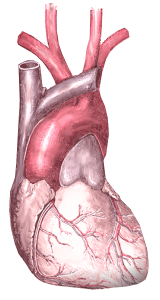 Proper protein folding is critical for cell functioning.
Lately, there’s been news that protein misfolding may be implicated in a range
of neurodegenerative diseases such as Parkinson’s, Huntington’s and
Alzheimer’s. Monte Willis and Cam Patterson of the University of North
Carolina, Chapel Hill, review the case that heart disease should be added to
the list.
Proper protein folding is critical for cell functioning.
Lately, there’s been news that protein misfolding may be implicated in a range
of neurodegenerative diseases such as Parkinson’s, Huntington’s and
Alzheimer’s. Monte Willis and Cam Patterson of the University of North
Carolina, Chapel Hill, review the case that heart disease should be added to
the list.
There’s no doubt that the cardiomyocytes (heart cells) that
give the heart its contractile power live in a delicate balance of protein
formation and destruction. In a healthy heart, proteins are constantly being
turned over with new proteins being made and old or damaged proteins degraded
and removed from the cell. Misfolded proteins can be particularly problematic.
One problem is that misfolded proteins can assemble into
larger clumps that disrupt cell functions. And in fact, a variety of cardiac
stress disorders are associated with these protein masses. You can induce mouse
heart cells to accumulate aggregates of misfolded proteins by stressing them in
varying ways and you can observe these accumulations in the damaged hearts of
human patients.
No comments:
Post a Comment